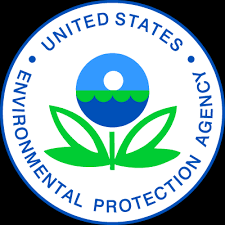
(WASHINGTON) — Today, the U.S. Environmental Protection Agency (EPA) announced a new method for conducting biological evaluations under the Endangered Species Act (ESA) to assure that pesticide registration review actions under the Federal Insecticide, Fungicide, and Rodenticide Act (FIFRA) do not jeopardize endangered species. The updated method ensures that—when available—the agency will use high-quality historical data that reflects where and how certain pesticides are used.

“Responsible pesticide use is an essential tool for managing America’s farmland,” said EPA Administrator Andrew Wheeler. “EPA’s improved methodology will better protect and promote the recovery of endangered species while ensuring pesticide registration review decisions are conducted in a timely, transparent manner and are based on the best available science. I want to thank our federal partners for working together to implement the 2018 Farm Bill and for helping EPA bring our pesticide assessment process into the 21st Century.”
ESA is a proven and critical tool for ensuring the recovery and protection of the nation’s most vulnerable species and habitats. However, for decades EPA’s approach for assessing pesticide risks to endangered species resulted in costly, time-consuming litigation and delays in pesticide registration decision-making.
EPA’s new “Revised Method for National Level Listed Species Biological Evaluations of Conventional Pesticides” (Revised Method) will better protect and promote the recovery of endangered species while ensuring pesticide registration review decisions are conducted in a timely, transparent manner and based on the best available science. With this action, EPA is fulfilling its commitment under the 2018 Farm Bill to ensure that pesticides can continue to be used safely with minimal impacts to threatened and endangered species.

“The required review of crop protection chemicals under the Endangered Species Act is an issue that has frustrated America’s farmers, ranchers, and producers for far too long. Under President Trump’s leadership, we are cutting the red tape to unleash the full potential of American agriculture,” said U.S. Secretary of Agriculture Sonny Perdue. “I am proud to join forces with my colleagues as we move forward on a protocol to allow the tools farmers need to feed, fuel, and clothe this nation and the world to reach market while also ensuring our environment is protected.”

“The Revised Method is an improved framework for Endangered Species Act pesticide consultations,” said U.S. Department of the Interior Secretary David Bernhardt. “By incorporating actual pesticide usage data into these assessments, they will be accurate and legally defensible. We look forward to working with the EPA to apply this framework and review public comment on the draft carbaryl and methomyl biological evaluations.”

“As EPA’s finalized method of conducting evaluations demonstrates, the whole-of-government approach to regulatory reform is bearing fruit,” said U.S. Department of Commerce Secretary Wilbur Ross. “Actual use of pesticides is an important factor to consider as we work to protect endangered species. The Department looks forward to working closely with our public and private partners to ensure that the rules are good for both our economy and our environment.”

“Under President Trump’s leadership, the Administration is committed to supporting agricultural communities and environmental protection,” said CEQ Chairman Mary B. Neumayr. “Since 2017, CEQ has worked collaboratively with EPA, DOI, USDA, and DOC to improve the ESA pesticide consultation process and today’s announcement reflects the Federal government’s commitment to a process that promotes timely and effective decision making and advances rural prosperity.”
The final Revised Method incorporates high-quality pesticide usage data into the agency’s biological evaluation (BE) process for the first time and was informed by input from a wide range of stakeholders, including states, tribes, environmental NGOs, and agricultural stakeholders.
In conjunction with today’s announcement, EPA is also releasing for public comment draft BEs for the insecticides carbaryl and methomyl which were conducted using the final Revised Method. EPA will accept public comment on the draft BEs for 60 days following publication in the Federal Register. After carefully considering public comments, EPA will finalize the BEs. If the agency determines a pesticide may affect a listed species or its critical habitat, the agency will consult with the Fish and Wildlife Service and the National Marine Fisheries Service (the Services). The Services will then issue a biological opinion to determine if the population of a species would be adversely impacted and, if so, propose ways to reduce risks.
To view the draft BEs for carbaryl and methomyl, final Revised Method document and learn more about how EPA protects endangered species from pesticides, visit: https://www.epa.gov/endangered-species.
Background:
As directed by Congress through the 2018 Farm Bill, EPA, the U.S. Department of the Interior, U.S. Department of Commerce, U.S. Department of Agriculture and White House Council on Environmental Quality established an interagency working group in 2018 tasked with providing recommendations and implementing a strategy to improve the Endangered Species Act of 1973 consultation process for pesticides. As part of this effort, in 2019, EPA proposed updates to the method it uses to evaluate the impacts pesticides have on endangered species to better protect and promote the recovery of species while ensuring timely pesticide registration review decisions and public transparency.



